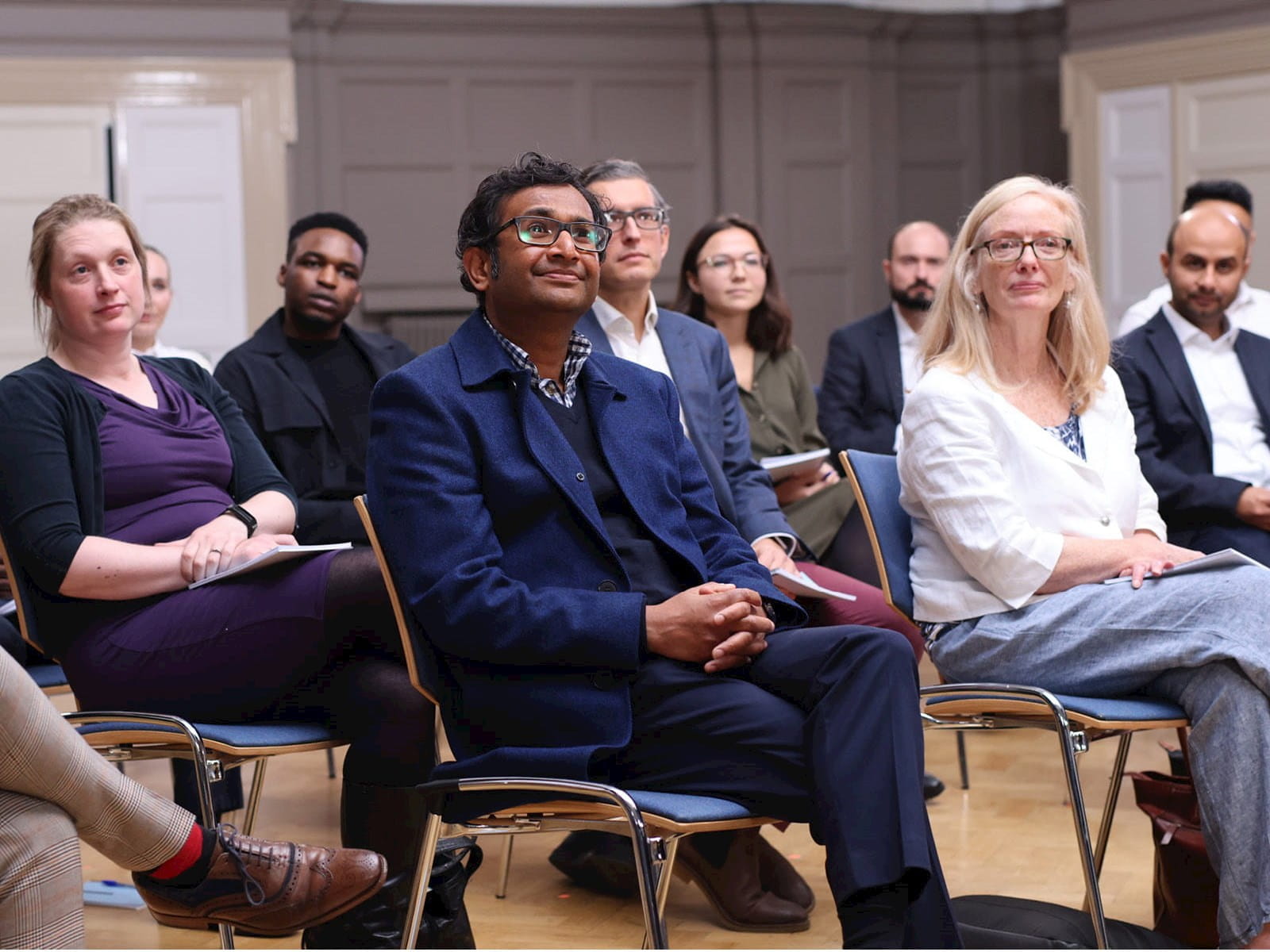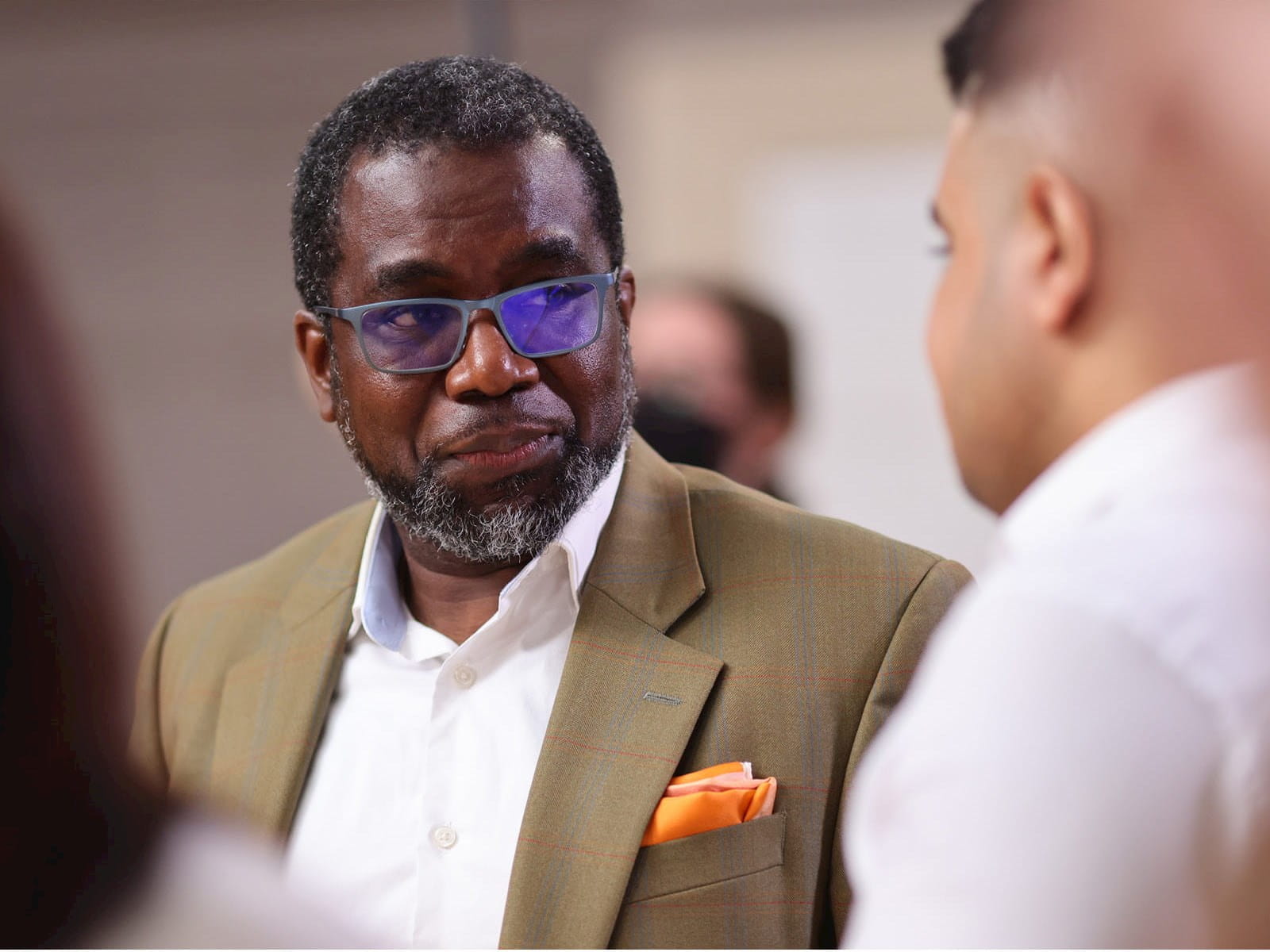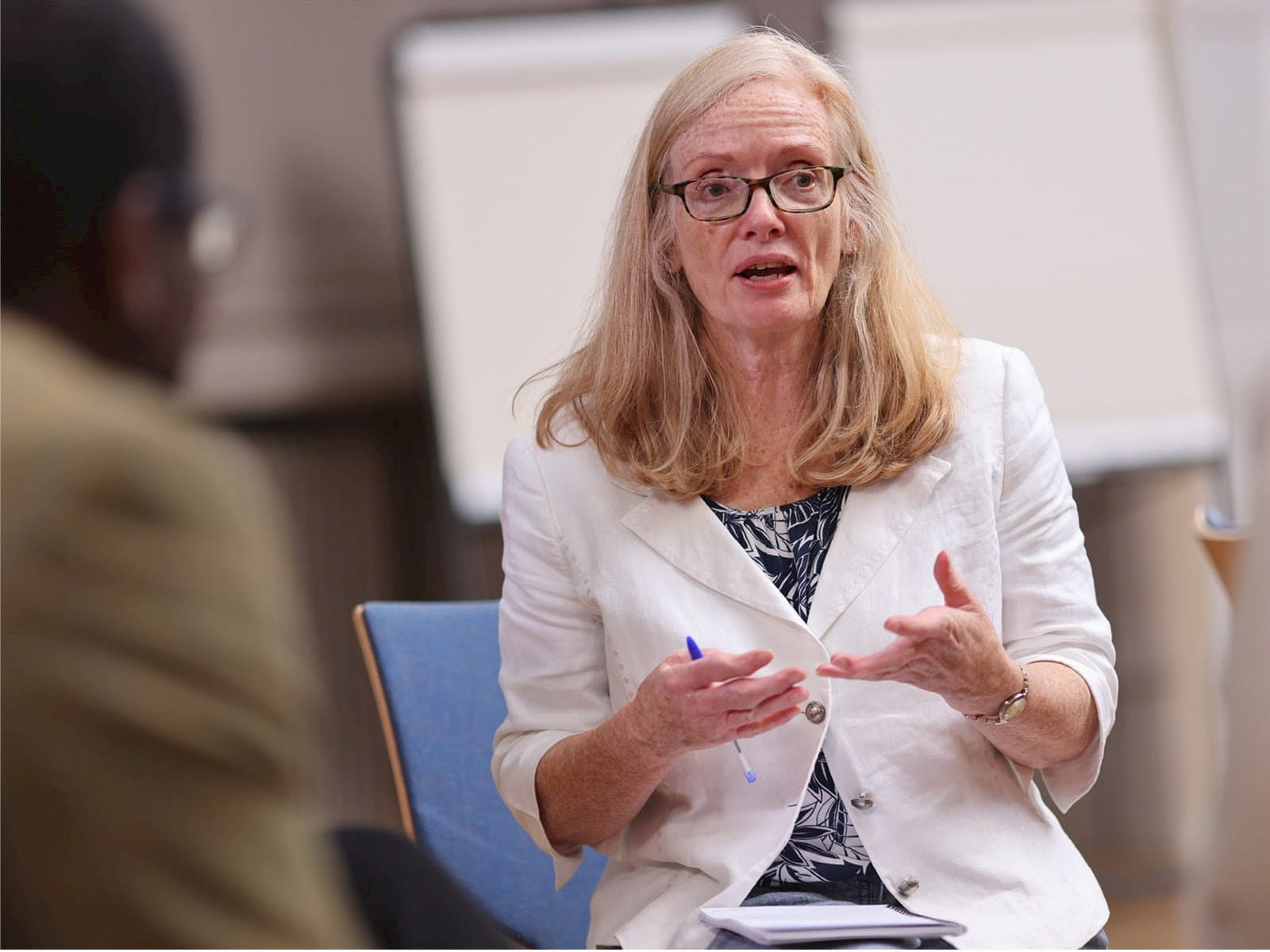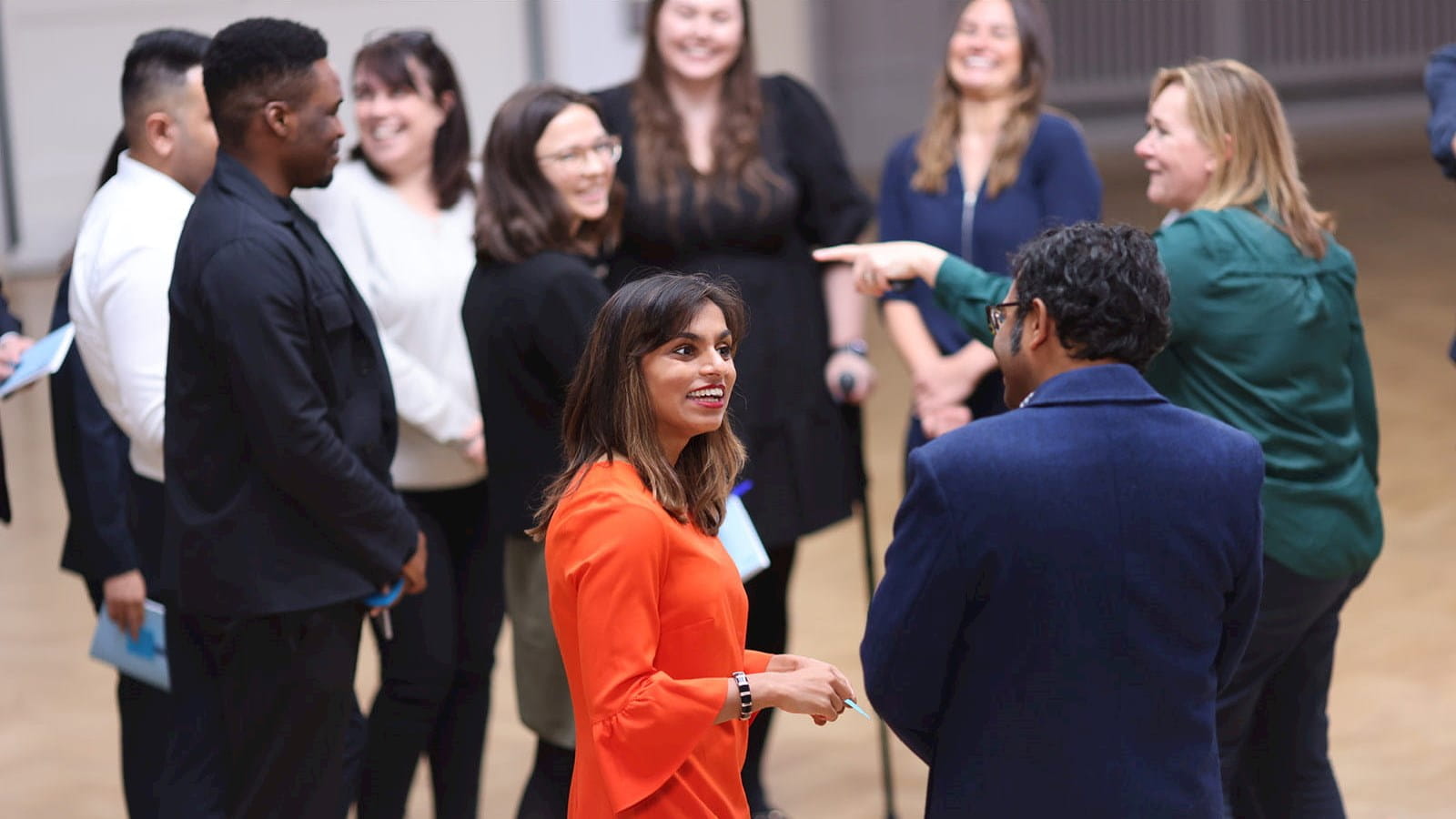ICAEW and Steps’ diversity and inclusion workshop used drama to create a safe space for people to discuss their experiences.
“Drama prompts people to share their stories. When we create a drama we want to create a fictional world, but with enough resonance to touch on individuals’ own stories.” Angela McHale is an “actor-facilitator” with Steps, a training company that helps employees reflect on and improve their organisational behaviour.
In practice, this means using drama-based diversity and inclusion (D&I) training to create an emotional response, and works best when there is friction between people’s values.
Training philosophy
ICAEW collaborated with Steps to hold a one-day D&I workshop with ICAEW members and students from all over the UK and with a wide range of backgrounds and levels of experience. The workshop was also filmed to share learning outcomes with a wider audience.
Within their scenarios, Steps touches on different D&I-related issues and uses humour to engage participants. Mark Shillabeer, Client Relationship Director said “our philosophy is to hold-up a mirror to behaviours that people will recognise in their day-to-day working circumstance. The idea is to challenge people to ask themselves: ‘Is this something I care about taking seriously? And if I do, what are the things – however small – I can do differently and encourage in other people, so that we can all start to work together to create the right kind of environment moving forward?’.”

The day
Steps actors played out multiple situations in a fictional accountancy firm over the course of the day. There was a meeting featuring microaggressions (commonplace and sometimes unintentional verbal or behavioural slights that communicate hostile, derogatory or negative attitudes towards marginalised groups). There were also scenarios featuring a manager putting pressure on a team member at the expense of their work-life balance, and a difficult meeting investigating why a less qualified White man had been promoted over a more skilled and experienced woman of Asian ethnicity.
Participants discussed the scenarios and “directed” actors to respond to or deal with the situation. The interactive scenarios gave participants the opportunity to think and talk through what they had seen. The participants started to challenge the characters and explored when behaviours can cross the line and become inappropriate. The training went on to show practical ways of effectively and appropriately challenging those behaviours in the workplace.
The workshop also included exercises designed to introduce and explore the concepts of inclusion and unconscious bias in the workplace. In one of the exercises, the facilitator wrote a word on the whiteboard – “run” – and instructed participants to individually list as many associated words they could think of. Participants then formed groups to establish how many listed words they shared. The group noticed that few people had written the same words; this example was used to demonstrate how differently a diverse group might respond to the same stimulus. The group was then invited to think about the benefit of this diversity in the workplace.
In another exercise, the facilitator gave a small piece of card in a random shape and colour to each participant, and instructed them to form groups based on their card. People started to group themselves in a logical way, either by shape or colour or both shape and colour. By putting yourself into a certain group naturally it becomes clear you are excluding other groups that are not similar to you. It is a really simple but powerful way of showing people that it is a natural desire for human beings to be able to categorise ourselves into groups of people who are like us and therefore make us feel comfortable.
This critical lesson shows that we tend to have this natural tendency to unconsciously build groups based on similarities we share with others. We unconsciously seek to surround ourselves with those who are “like us”. However, if we are aware of this tendency, we can counteract it. We can then start to form groups based on a much wider range of characteristics and not just the most obvious ones and we all benefit from that difference of thought.

Feedback
ICAEW members described the day as “eye-opening”. “The diversity of the attendees was amazing and that gave me an opportunity to listen to a lot of different viewpoints and lived experiences,” says Grant Martin, Interim Chief Internal Auditor at Monzo Bank. “I had not realised that intersectionality can leave people feeling othered by both of the camps that they belong to. It has helped me to not make assumptions about people.”
Sam Tasker-Grindley, Head of Advisor Success at Swoop said; “I was blown away by the whole experience, the scenarios were brilliantly acted and everyone was given an opportunity to share their thoughts and their own stories, which made the whole day all the more powerful. The dramatic scenarios were obviously showing extreme situations but unfortunately I recognised all of the behaviour on display in the various accounting firms I’ve worked for. We must get better.”
Part of getting better is recognising that D&I training is not a one-off quick fix but should be part of a longer-term inclusion strategy. “By investing your time and money into a very important learning and development intervention you are not going to solve everything. It's a really important part of the journey but it's not the journey in itself,” Shillabeer says. “It’s about creating a supportive environment for people to ask more questions, seek more help, talk to and challenge each other and keep the conversation going. This has to happen in the weeks and months after a learning intervention and it has to live and breathe forever in an organisation.”
“A real eye opener”

As a method of D&I training, the workshop scored an average nine out of 10 by participants, and 93% of the participants said they were highly likely to recommend the workshop to colleagues.
Biyi Oloko, Director at international advisory firm Stephen Simeon, said the workshop helped him to see a wide range of diversity in action. It also provided an innovative approach to communicating how essential diversity and inclusion are to making strategic decisions and then implementing them. “The first session, which included the ‘Run’ game, demonstrated the diversity of our thinking, reaffirmed the message that diversity and inclusion produce better and more comprehensive decision-making. I once heard somebody say that diversity is about being allowed into the room and inclusion is about being included in the dance. That hasn’t changed.”
The workshop offered “scenarios I had never thought about”, including the way partners spoke to each other about promotions, said Krita Shah, FSO assurance associate at EY. “It made me think about how we let a lot of things just slide under the carpet when really we should be questioning them,” she added.
Barbara Boyle, Interim Finance Director and D&I Champion on the Board of ICAEW’s Liverpool Society of Chartered Accountants, thought the workshop took an exploratory and innovative approach. “Many professions have been grappling with how to deal with big social issues and lots of social change and I have been curious how ICAEW would respond to this,” she said. “It’s about learning and coming up with practical examples that will be of relevance and use to people within the changing diversity and inclusion landscape in business.”

